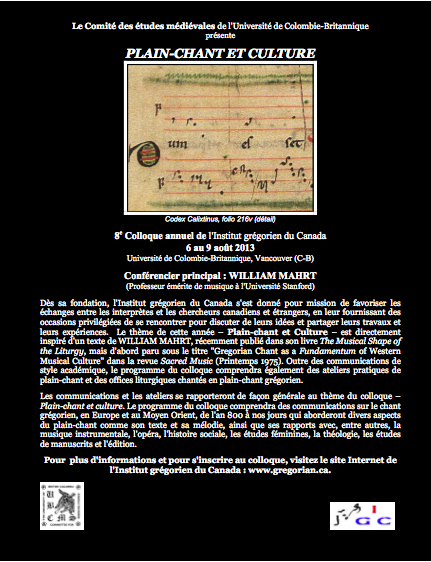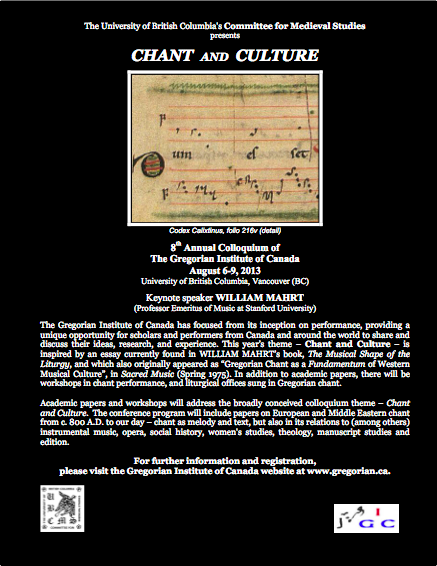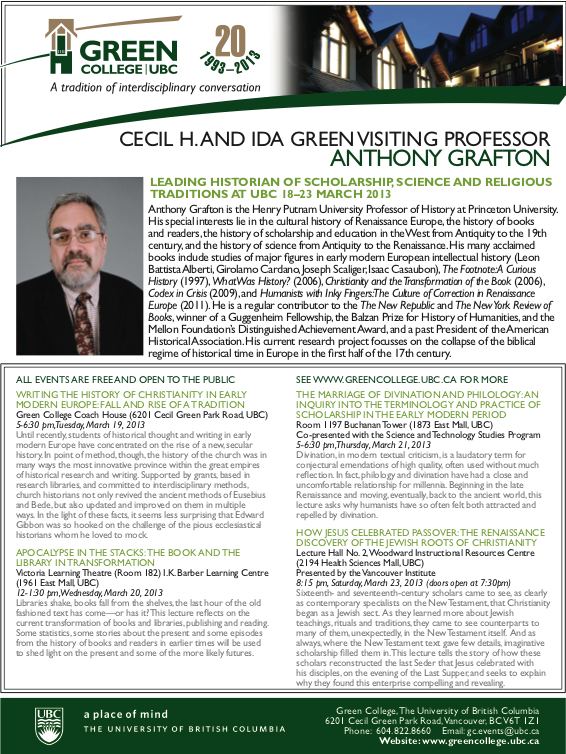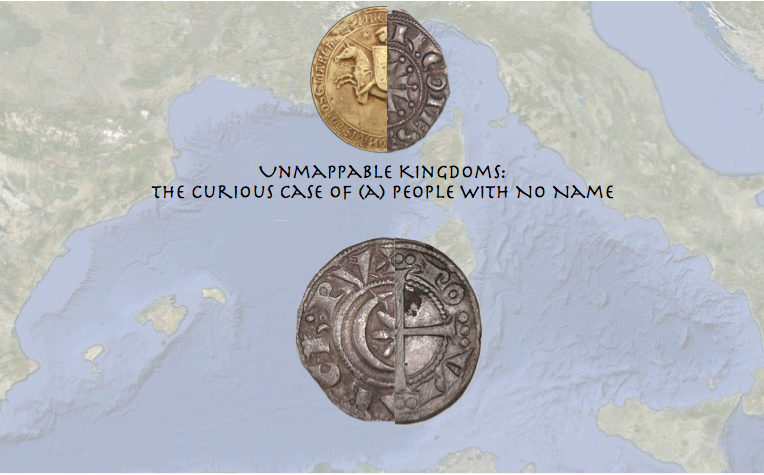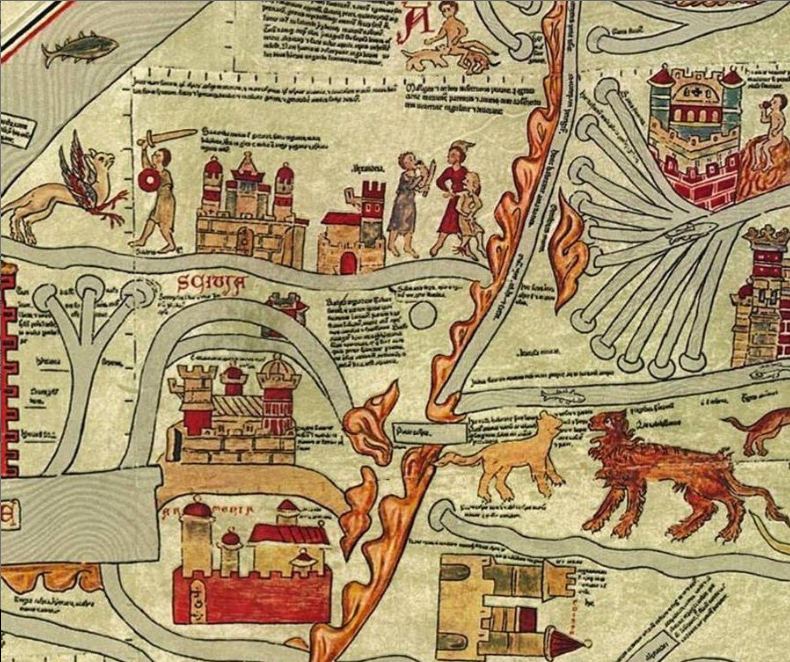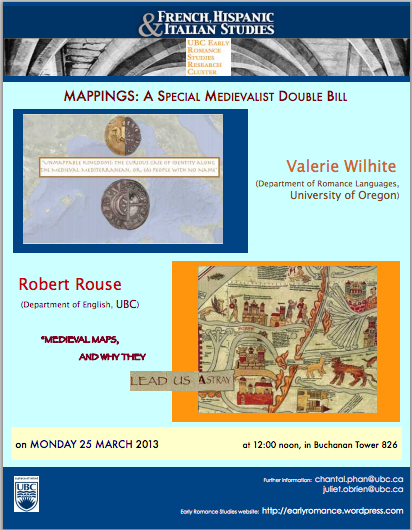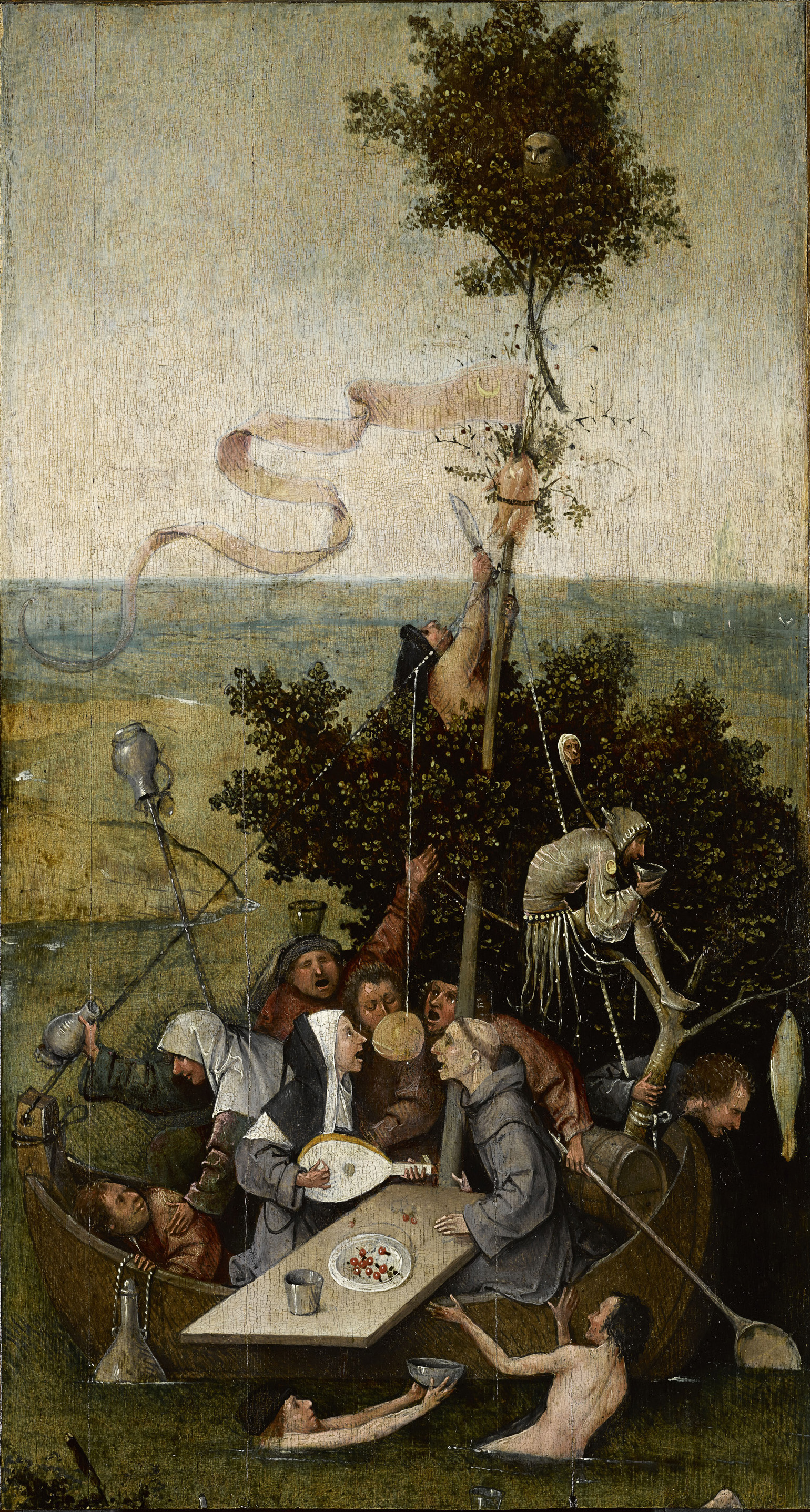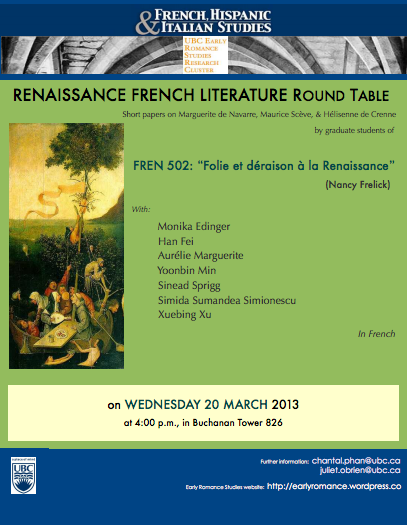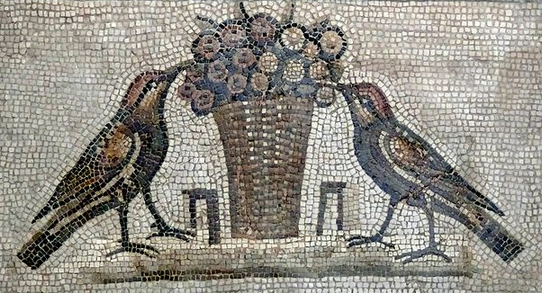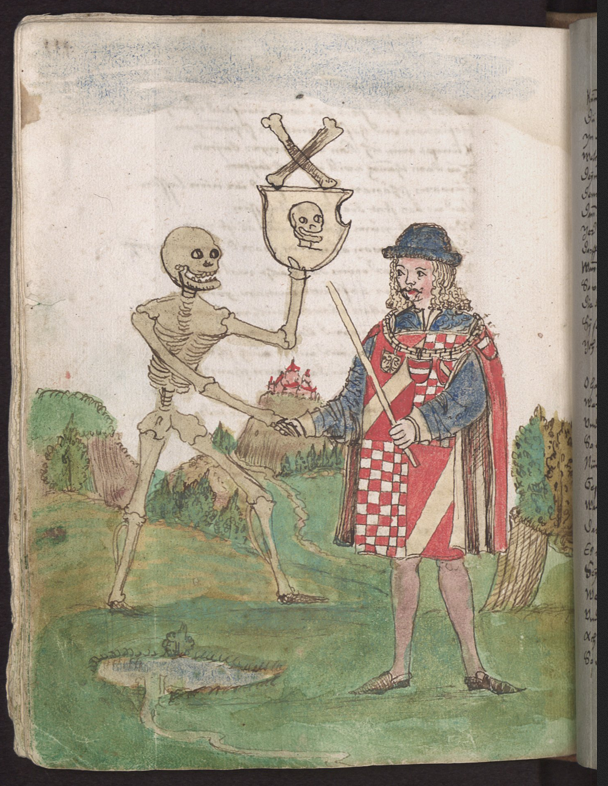Fri., Mar. 22, 8:30 AM – Sat., Mar. 23, 9:30 PM
Bodies in Motion: Translating Early Modern Science
March 22-23, 2013
University of British-Columbia
Keynote: Anthony Grafton, Henry Putnam University Professor of History at Princeton University and Cecil H. and Ida Green Visiting Professor at UBC on The Marriage of Divination and Philology: An Inquiry into the Terminology and Practice of Scholarship in Early Modern Europe (and some other places)
Th. March 21, 2013 5pm
Buchanan Tower, Room 1197
This two-day workshop will bring an international group of scholars together in a project that examines modes and media of translation in the early modern world. Focusing on collaborative learning, the workshop will feature a series of mini-seminars on work in progress by leading international scholars of the narratives and theories of translation in global scientific history, as well as master classes in translating early modern texts.
Working across Eurasian contexts and into the Indian Ocean, participants will collectively explore the language-worlds of French, Chinese, Spanish, Persian, Manchu, Portuguese, Italian, and English as they have shaped the knowledge of bodies and their interactions. This workshop is designed to be the first step in what will hopefully become a much larger “Bodies in Motion” project devoted to translation and the sciences. In the near- and medium-terms, the project aims to establish an ongoing web archive of pedagogical materials on translation and the sciences, hopefully including short interviews with scholars working on texts in the field.
To register for the workshop, please contact organizer Carla Nappi at carla.nappi [at] ubc.ca. All registered participants are invited to join the workshop notebook on Evernote, which includes access to a detailed guide to the workshop, all pre-circulated materials, and virtual discussion spaces.
“Bodies in Motion” Workshop Schedule
Buchanan Tower, 1873 East Mall, University of British Columbia
* “Seminars” are devoted to discussing pre-circulated papers. While they may focus on particular language contexts and may introduce participants to documents in particular foreign languages, they do not assume any language training or background and no special language skills are required to take part!
* “Master classes” are devoted to working closely with primary source texts in different languages, indicated below. It is assumed that participants will have some background in the language of the document to be treated.
* “Talks” and “Discussions” involve no preparation ahead of time: just come and listen and talk!
Thursday March 21
5.00 pm – 6.30 pm: Anthony Grafton talk, “The Marriage of Divination and Philology: An Inquiry into the Terminology and Practice of Scholarship in the Early Modern Period (And Some Other Places)” Room 1197, Buchanan Tower, 1873 East Mall, UBC [Co-sponsored by the UBC Science and Technology Studies Program and Green College, and of likely interest to workshop participants!]
Friday March 22
8.30 am – 9.30 am: Breakfast and coffee
9.30 am – 9.45 am: Carla Nappi welcome
9.45 am -11.15 am: Concurrent seminars – (1) Avner Ben Zaken seminar: Dioscorides from Istanbul to Vienna; and (2) Anita Guerrini master class [French]: The preface to the 1671 Memoires pour servir a l’histoire naturelle des animaux
11.15 am – 11.30 am: Coffee break
11.30 am – 1.00 pm: Concurrent seminars – (1) Nicolás Wey-Gómez master class /seminar [Spanish]: 11 October 1492, from The Diario of Christopher Columbus’s First Voyage to America; and (2) Sebastian Prange seminar: “Traversing Traditions: The Travels of Cheraman Perumal, The First Indian Muslim”
1 pm – 2 pm: Lunch for all participants
2 pm – 3.30 pm: Florence Hsia seminar: On Jesuit ethnography, autoethnography and ”Sinographic spaces”
3.30 pm – 3.45 pm: Coffee break
3.45 pm – 5.00 pm: Concurrent seminars – (1) Neil Safier seminar, ”Books as Border-Crossers: Frei José Mariano da Conceição Veloso and the Literary Itineraries of the Blind Man’s Arch”; and (2) Carla Nappi seminar, “Constellating Manchu Bodies”
5.00 pm – 6.00 pm: Roundtable discussion with everyone
6.00 pm: Dinner in Buchanan Tower for all participants
Saturday March 23
8.30 am – 9.30 am: Breakfast and coffee
9.30 am – 11.00 am: Michael Gordin talk: “Scientific Babel”
11.00 am – 11.15 am: Coffee break
11.15 am – 12.45 pm: Concurrent seminars – (1) Volker Scheid seminar: “(R)Evolution in Chinese Medicine: Changing Perceptions of Body, Pathology and Treatment in Late Imperial China”; and (2) Coll Thrush seminar: “‘Meere Strangers’: Indigenous and Urban Performances in Algonquian London, 1580-1630″
12.45 pm – 2.00 pm: Lunch for all participants
2.00 pm – 3.30 pm: Concurrent seminars – (1) Carlo Testa seminar: “Celestial Bodies in Contested Motion: Some Observations on Galileo and the Mobile Nature of Scientific ‘Truth’”; and (2) Alison Bailey master class [Chinese]: Wang Mingde’s Dulu peixi 讀侓佩觿 (1670s)
3.30 pm – 3.45 pm: Coffee break
3.45 pm – 5.00 pm: Roundtable discussion with everyone
*All participants are free to make their own plans for dinner on Saturday!
Contact: Carla Nappi, carlanappi@gmail.com
Link to more information:
http://carlanappi.com/2013/03/13/bodies-in-motion-workshop-22-23-march-2013-university-of-british-columbia/
